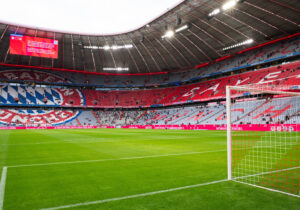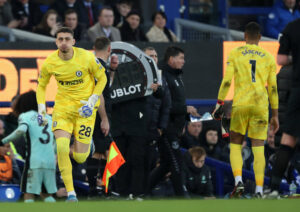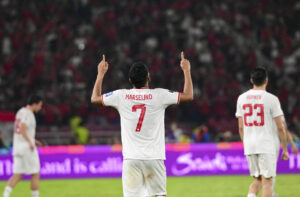When Tottenham Hotspur sacked José Mourinho on the 19th of April, one would have been forgiven for thinking that he would be out of a job for at least a month or two. Certainly, the evidence suggested that he would be in no rush to find a new job. The enormous pay-off that he would receive from Spurs would help pay the mortgage; permanent managerial appointments are less common at this point in the season; and surely no club would be chomping at the bit to bring in a coach whose recent decline has been obvious. TalkSPORT’s announcement on the 30th of April that he would join their coverage for the upcoming European Championship only seemed to confirm that Mourinho would not be in football management until at least mid-summer.
That line of thinking turned out to be false. Yesterday, AS Roma announced that Paulo Fonseca will leave the club at the end of the season and that José Mourinho will take over on the 1st of July, in the space of about three hours. Roma have struggled in Serie A this season, and their capitulation against Manchester United last week in the Europa League semi-finals was very disappointing, so a desire for managerial change was understandable. But does the choice of replacement make sense?
Present Day José Mourinho: Not Even a Shadow of His Former Self
A Big Change in the Man
In all sport, sentimentality is normal. It is part of the reason why so many players and coaches are desperate for a last chance when taking a break, or even retiring, would be the more rational option, and why so many teams are willing to give them these chances. In short, reputation matters. This might explain why clubs such as Roma, who have long-term ambitions of success, would still be so keen to employ someone with Mourinho’s recent track record.
One could easily argue that it is only compared to his past achievements that the Portuguese’s record since his last league title in 2015 looks poor. After all, it would be impossible for a manager to keep up the level of success that he enjoyed for so long forever. On the contrary, it is precisely his past achievements which is why many want to ignore just how bad some of his teams’ performances have been. Mourinho is not a ‘shadow of his former self’, but a different manager (and, in many ways, personality) entirely.
The Last Six Years
In his final season at Chelsea, Mourinho lost nine league matches in 16 games, winning only four. There were so many disastrous performances that it would be difficult to select the worst of the lot, but the 3-1 defeat at home to Southampton was up there. It would be letting Mourinho off easy to call this season an outlier, too. He was a destructive presence to a team performing spectacularly below par.
At Manchester United, there were further warning signs. Despite triumphs in the Europa League and League Cup in his first season, and a respectable league performance and FA Cup final appearance in his second, things unravelled in the third, and Mourinho was sacked with the team having drawn five and lost five in 17 league games.
In the 2016/17 Premier League, United drew 15 games. Their poor win tally was not due to bad luck either. Plenty of those draws (and victories) could have gone the other way. Zlatan Ibrahimovic scored 17 goals in 28 appearances, but the team managed just 18 wins in 38 games and only 54 goals. No one should try to discredit the performances in 2017-/8, nor the manager’s role in their consistency, but the way the team fell apart in his final few months was a clear warning sign that a trend was starting to form.
At Tottenham, this trend became clear for all to see. Seventeen league defeats in 57 games, embarrassments against the likes of Norwich City and Dinamo Zagreb in the knockout competitions, constant rumours of the fatal ‘losing the dressing room’ circulating, and Mourinho appearing to call out his own players, meant that any purple patches were simply not worth it. All of the drawbacks of Mourinho’s managerial style seemed to combine to create a toxic cocktail.
A Change in Personality
Arguments may rage about who was to blame for these poor seasons, or whether Manchester United should have given him more time, but these kinds of capitulations did not used to happen. If he were a ‘shadow of his former self’, the last three seasons would still not have been anywhere near as bad. Even more concerning, however, is how his personality has changed.
Mourinho has always been a cantankerous figure. This is not news. But his behaviour has changed dramatically from his glory days. He used to make comments which were specifically designed to attract media attention, such as his infamous ‘park the bus’ remark against Tottenham in 2004, as a means of either misdirection or to use any fallout from his comments to build a siege mentality around his players. The ‘us against them’ mindset is extremely effective when creating a winning team over a short period of time, and Mourinho has used this on countless occasions. It may have caused him problems in the long-term when players realise that there is no real siege, and if certain players have not bought into it, it has caused significant relationship issues with the manager, but it always used to yield trophies.
Nowadays, Mourinho behaves like this out of desperation. An early example of this was his bizarre press conference after losing 3-1 to Southampton in 2015. It was almost a stream of consciousness, from a man who was seemingly beaten down. Even more notable was his meltdown after Manchester United lost 4-0 to Chelsea, where he accused Antonio Conte of trying to ‘humiliate’ him by celebrating too much. Would the José Mourinho of the 2000s have ever been so humbled as to ask his opponent not to rub it in?
The Future
This is the crux of the issue: there is no semblance of what José Mourinho once was. In his prime, there always were downsides to his style, but they usually came with a whole host of silverware. Now, these downsides are all that exists. Roma fans will hope that he can conjure up some of his past genii, and the fact that at both Manchester United and Tottenham he was still able to go deep in cup competitions will give them some cheer, but on the evidence of the last few years, this does not look like a sound appointment. In Rome, he will not be under the same scrutiny that he was in England and will be at a club with relatively lower ambitions, so it is still possible that he will perform up to standard. But if the trajectory that he is currently on continues, it could get ugly very quickly.
Main Photo






